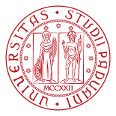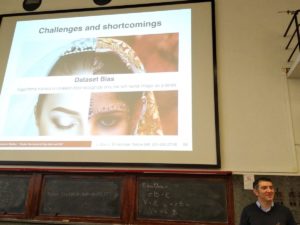 I recently gave a talk at “The Law of Big Data” seminar series @UniPD (you can watch the video on YouTube).
I recently gave a talk at “The Law of Big Data” seminar series @UniPD (you can watch the video on YouTube).
How AI and big data are affecting our society, culture and laws? Many are claiming that data is the “new oil”, and the data-driven / machine-learning paradigm is changing how we address many different problems. Self-driving cars, robot caregivers and chatbot platforms are really happening, while they were only popular sci-fi topics until a few years ago. The aim of this lecture is to introduce the key concepts that have led to these results, to highlight what are the main challenges and open problems, thus trying to unveil what’s in the box.
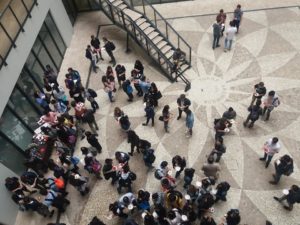 I recently gave a talk on “Teaching machines to see: a quest to visual intelligence” at the “Math&CS Pride” open-day outreach event organized by the Dept of Mathematics “Tullio Levi-Civita”, for undergrad and high school students.
I recently gave a talk on “Teaching machines to see: a quest to visual intelligence” at the “Math&CS Pride” open-day outreach event organized by the Dept of Mathematics “Tullio Levi-Civita”, for undergrad and high school students.
It was super fun (at least for me :), and this are the slides of the talk.
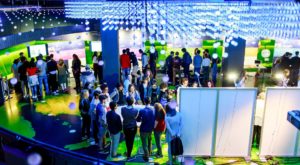 This 26 and 27 September 2017, I was involved in the kickoff event for European Researchers’ Night in Brussels #MSCAnight. With thousands of visitors, most of which were children, it was a smashing success! I have presented my research on machine learning and visual perception, and talked about visual illusions and teaching computers to see.
This 26 and 27 September 2017, I was involved in the kickoff event for European Researchers’ Night in Brussels #MSCAnight. With thousands of visitors, most of which were children, it was a smashing success! I have presented my research on machine learning and visual perception, and talked about visual illusions and teaching computers to see.
More about the event: https://goo.gl/QNkxgY, more about my work and some nice pictures.
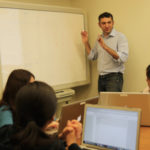 In the past two weeks I have been involved as computer vision project mentor in the Stanford Artificial Intelligence Laboratory’s OutReach Summer program (SAILORS). SAILORS is a summer camp for high school girls and it is intended to increase diversity in the field of AI. SAILORS aims to teach technically rigorous AI concepts in the context of societal impact.
In the past two weeks I have been involved as computer vision project mentor in the Stanford Artificial Intelligence Laboratory’s OutReach Summer program (SAILORS). SAILORS is a summer camp for high school girls and it is intended to increase diversity in the field of AI. SAILORS aims to teach technically rigorous AI concepts in the context of societal impact.
Check out SAILORS blog to know more about the program. SAILORS was also recently featured in Wired.
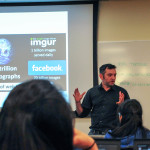 I have just given a tutorial on kNN at the Stanford Artificial Intelligence Laboratory’s Outreach Summer program (SAILORS). SAILORS is designed to expose high school students in underrepresented populations to the field of Artificial Intelligence.
I have just given a tutorial on kNN at the Stanford Artificial Intelligence Laboratory’s Outreach Summer program (SAILORS). SAILORS is designed to expose high school students in underrepresented populations to the field of Artificial Intelligence.
The slides are available on this page and the Matlab code is also available for download. This is an updated version of the code used in class and should work also on Octave.
 I recently gave a talk at “The Law of Big Data” seminar series @UniPD (you can watch the video on YouTube).
I recently gave a talk at “The Law of Big Data” seminar series @UniPD (you can watch the video on YouTube). I recently gave a talk on “Teaching machines to see: a quest to visual intelligence” at the “Math&CS Pride” open-day outreach event organized by the
I recently gave a talk on “Teaching machines to see: a quest to visual intelligence” at the “Math&CS Pride” open-day outreach event organized by the  This 26 and 27 September 2017, I was involved in the kickoff event for European Researchers’ Night in Brussels
This 26 and 27 September 2017, I was involved in the kickoff event for European Researchers’ Night in Brussels 

